Esquire – U.S.
Walker’s Wasting Taxpayer Money Fighting Democracy
Charles P. Pierce, Esquire March 29, 2018

Being our semi-regular weekly survey of what’s goin’ down in the several states where, as we know, the real work of governmentin’ gets done, and where the shepherd is asleep and the willows weep.
Because we are on our way to San Antone-mandatory nod to Bob Wills-we are making only two stops on our tour this week, but both of them are cherce. We begin in Wisconsin, where the desperate attempts of Scott Walker, the goggle-eyed homunculus hired by Koch Industries to manage that particular midwest subsidiary, and his pet legislature to subvert both democracy and the duties of Walker’s office have reached the level of what my sainted mother used to call high-sterics.
For the benefit of customers who may have come to tinhorn politicians late, the Republican majorities in the Wisconsin legislature gerrymandered the state so badly that even this Supreme Court gagged on the result. In addition, two seats in the state legislature came open and Walker was required by law to call special elections to fill them. Given the pasting Republicans have taken in similar elections around the country, this did not fill Walker and his pet legislature with either optimism or glee. So, he simply refused to call the elections.
Last week, however, a judge that Walker appointed told him to get the Koch Brothers’ mitts off his puppet strings and call the elections. This occasioned a week of huffing and blowing all throughout the capitol in Madison. The legislature has before it a bill that would eliminate the special elections on the grounds that the Republicans might lose them. (I’m paraphrasing here.) Meanwhile, Walker appealed the previous court’s decision and, on Wednesday, another court in Dane County slapped him down. From The Wisconsin State Journal:
“Walker hasn’t argued that he can’t order the elections or that Reynolds was wrong in requiring him to do so, Niess said. Rather, he said, the governor wants to be allowed to delay carrying out “his mandatory, compulsory duty because there are now other reasons that he has brought to the court’s attention.” “But these other reasons don’t change the fact that his duty under the law remains the same,” Niess said. “No court that I’m aware of is at liberty to ignore the law in order to facilitate the Legislature’s consideration of bills that might become law. When and if a legislative bill becomes law it can be brought to the court, and at that time the arguments can be made as to what the effect of that law is on an already pending (order).”
In other words, Walker argued that his pet legislature will pass his blatant power-grab and so the judge should stay the elections until he and the legislature get their chance to destroy them entirely. This argument, while quaint, did not impress the judge.
Walker then threatened to bring the whole matter before the state supreme court, but he chickened out almost instantaneously, largely because an appellate court judge did everything but knock him silly with the gavel. From the State Journal:
“Earlier Wednesday, 2nd District Appellate Court Judge Paul F. Reilly dismissed Walker’s argument that the court should allow time for the Legislature to rewrite state law that would effectively block the special elections. Reilly issued the one-page ruling hours after DOJ appealed two Dane County judges’ decisions ordering Walker to call the special elections. “Representative government and the election of our representatives are never ‘unnecessary,’ never a ‘waste of taxpayer resources,’ and the calling of the special elections are as the Governor acknowledges his ‘obligation’ to follow,” Reilly wrote.”
Walker had been thumping his tubs for weeks about how “outside forces” were making the good people of Wisconsin pay for special elections that Walker was obligated by law to call. (This is not dissimilar to the argument he made successfully against the campaign to recall him.) Judge Reilly had quite enough of that. Walker finally hollered uncle and scheduled the special elections for June 5. (The bill to do away with them appears to be dead as well.) There was no accounting for all the money the good taxpayers of Wisconsin had to kick into Walker’s attempts to find a legal way not to do his job. They really would rather some people not get to vote. Jesus, these people.
And we conclude, as is our wont, in the great state of Oklahoma, where Blog Official Derelict Gas Station Inspector Friedman of the Plains brings us an illuminating moment from a debate in that state’s legislature regarding education policy. From KFOR-4, Oklahoma’s News:
“On Monday, members of the Oklahoma House of Representatives debated a bill that would fund a teacher pay raise through several revenue-raising measures. “Money is not the number one issue,” said Rep. John Bennett. “Maybe if we spanked our kids at home a little better with a paddle, made them mind and be good kids, the teachers wouldn’t have it so hard in the classroom.” On Tuesday, Bennett stood by his words. “I’ve told all my kids’ teacher that, ‘If they get out of line, use a paddle on them,’” Bennett said. “If they get out of line after that, call me and I’ll come up and paddle them in front of the whole class because they will not disrespect their elders or teachers in school.” Bennett said bad behavior in schools is costing the state money. “Oh, absolutely,” Bennett said. “It wastes the teachers’ time, and money and effort because teachers aren’t supposed to be parents. They’re a role model but not a parent. The parents need to do what they’re supposed to do as parents, put them on the learning foundation and then send them to school. And, then our teachers can do their job, which they do so well, and teach their kids.”
I think Representative Bennett should be at the top of the list of any PTA that classifies its students as enemy combatants.

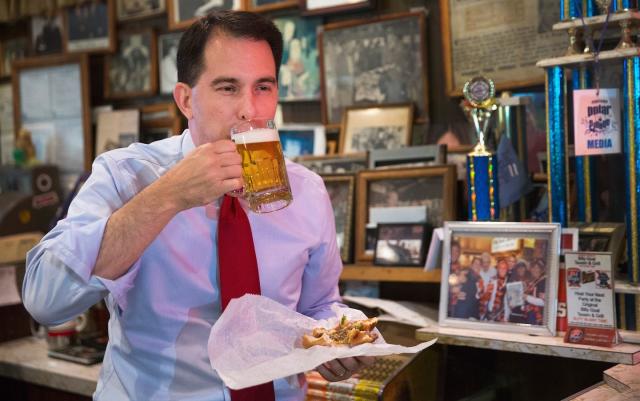
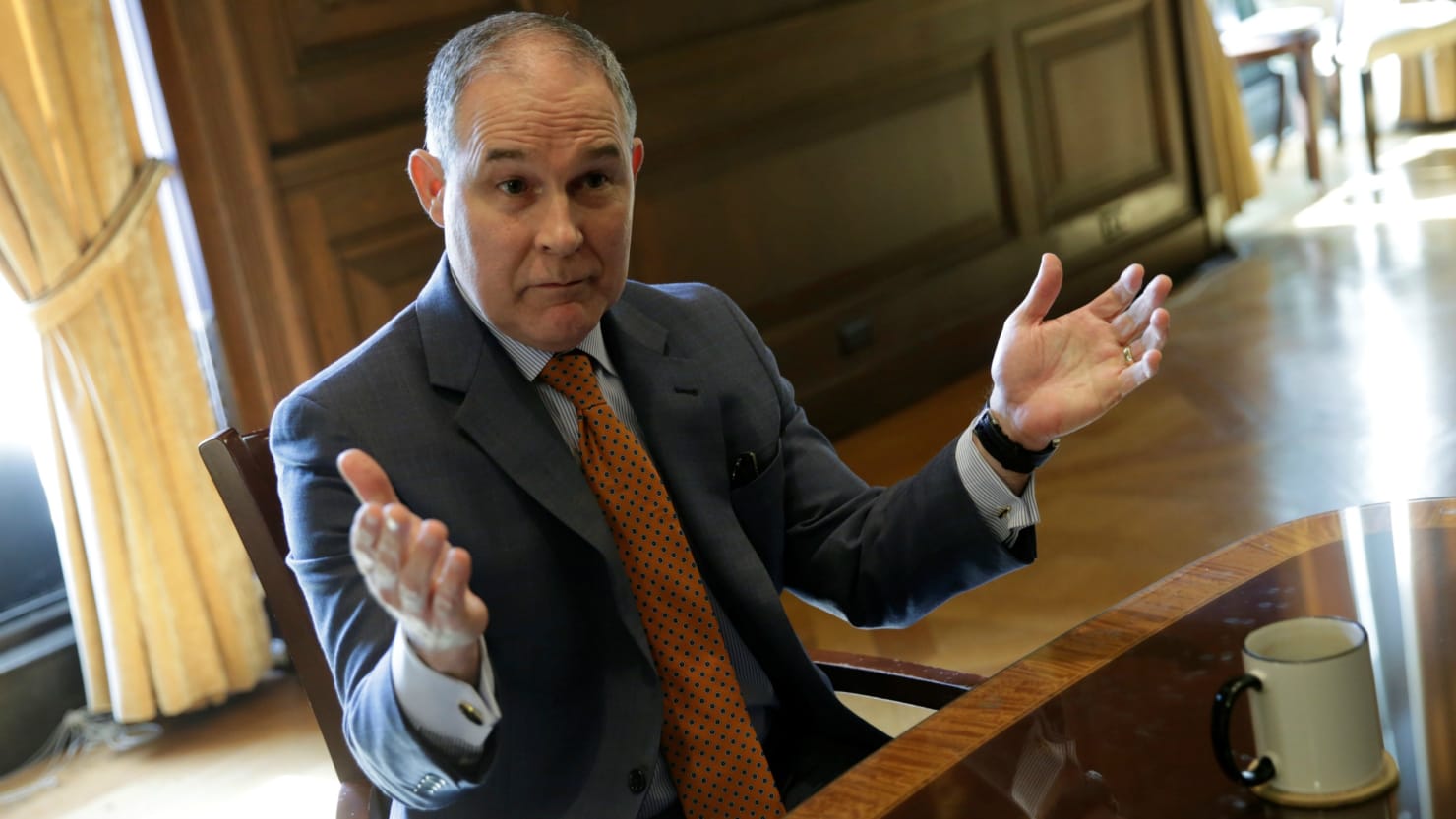 Scott Pruitt: Everything you need to know
Scott Pruitt: Everything you need to know ABC News. A townhouse near the U.S. Capitol where EPA Administrator, Scott Pruitt is said to have stayed. The building is co-owned by the wife of a top energy lobbyist, property records from 2017 show.
ABC News. A townhouse near the U.S. Capitol where EPA Administrator, Scott Pruitt is said to have stayed. The building is co-owned by the wife of a top energy lobbyist, property records from 2017 show. 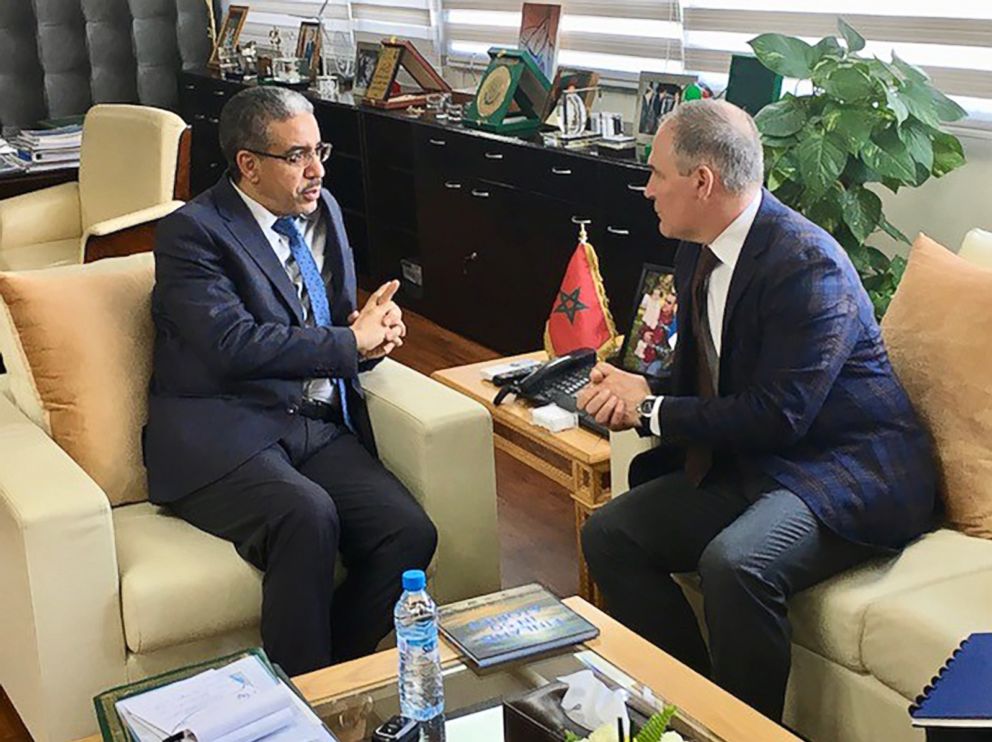 Environmental Protection Agency. EPA Administrator Scott Pruitt, right, meets with Moroccan Minister of Energy, Mines and Sustainable Development, Aziz Rabbah during a trip to Morocco in December of 2017.
Environmental Protection Agency. EPA Administrator Scott Pruitt, right, meets with Moroccan Minister of Energy, Mines and Sustainable Development, Aziz Rabbah during a trip to Morocco in December of 2017.  Obtained by ABC News. A photo obtained by ABC News shows EPA Administrator Scott Pruitt deplaning a military-owned plane in June 2017 at New York’s John F. Kennedy International Airport.
Obtained by ABC News. A photo obtained by ABC News shows EPA Administrator Scott Pruitt deplaning a military-owned plane in June 2017 at New York’s John F. Kennedy International Airport. 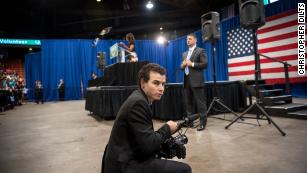 Simon Edelman
Simon Edelman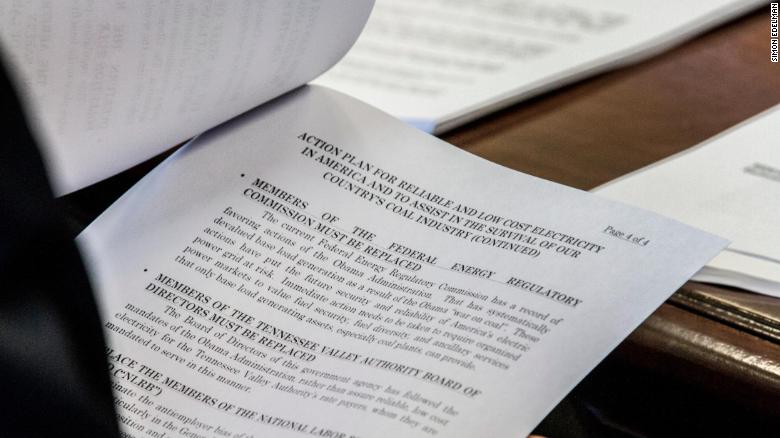 Secretary of Energy Rick Perry reviews Murray Energy CEO Robert Murray’s “action plan.”
Secretary of Energy Rick Perry reviews Murray Energy CEO Robert Murray’s “action plan.”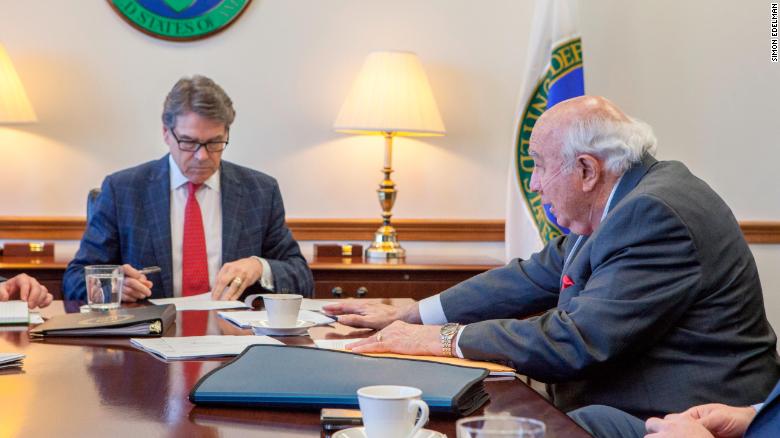 Secretary of Energy Rick Perry and Murray Energy CEO Robert Murray meet.
Secretary of Energy Rick Perry and Murray Energy CEO Robert Murray meet.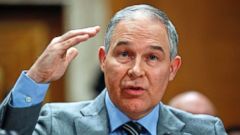 EPA plans to roll back major Obama-era climate rule
EPA plans to roll back major Obama-era climate rule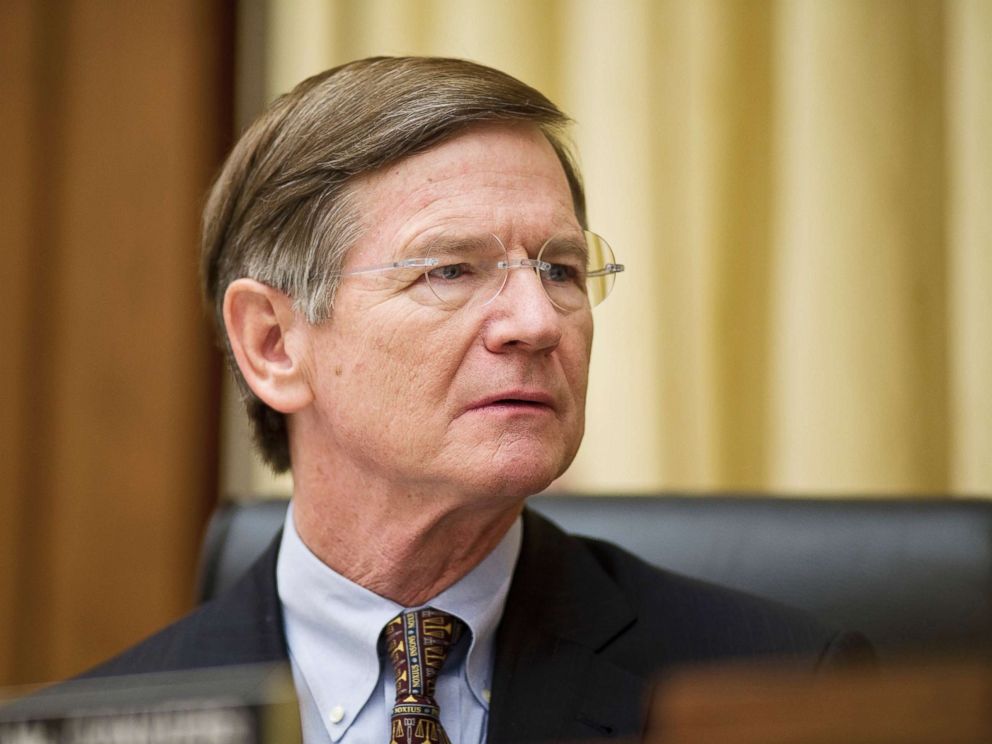 Scott J. Ferrell/CQ-Roll Call via Getty Images, FILE. Chairman Lamar Smith, R-Texas, listens during the House Judiciary hearing on medical liability issues.
Scott J. Ferrell/CQ-Roll Call via Getty Images, FILE. Chairman Lamar Smith, R-Texas, listens during the House Judiciary hearing on medical liability issues. Republicans propose a balanced budget amendment after voting for trillion dollar legislation. Credit: Alex Edelman-Pool/Getty Images.
Republicans propose a balanced budget amendment after voting for trillion dollar legislation. Credit: Alex Edelman-Pool/Getty Images.

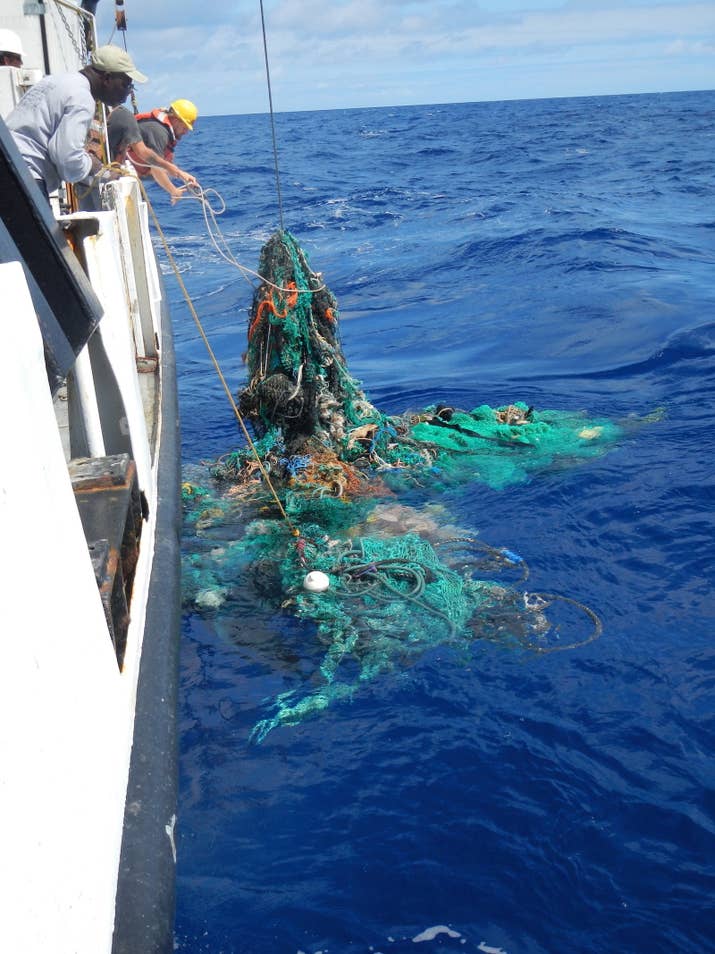 The Ocean Cleanup
The Ocean Cleanup The Ocean Cleanup
The Ocean Cleanup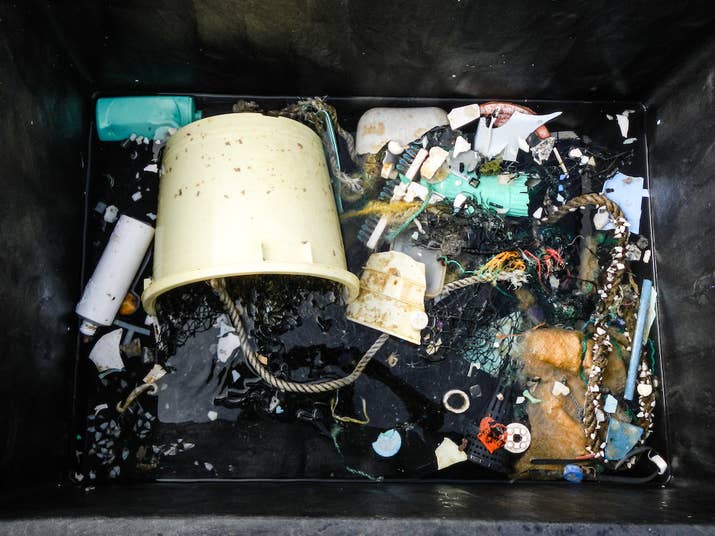
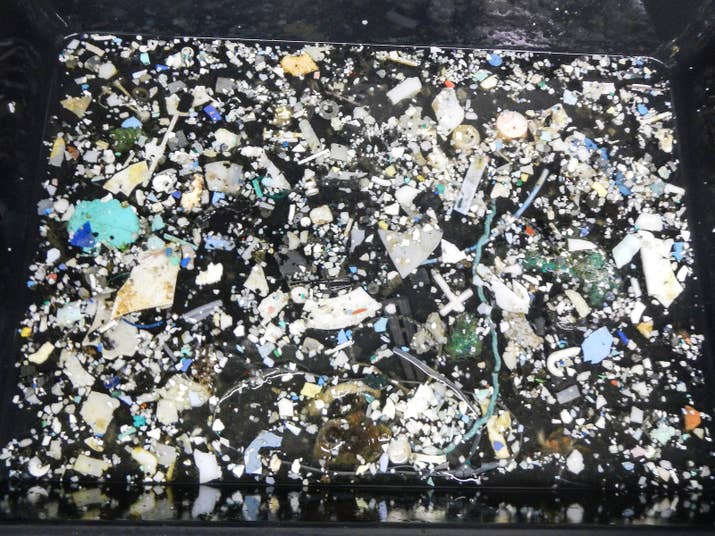 The Ocean Cleanup
The Ocean Cleanup The Ocean Cleanup
The Ocean Cleanup Peter Dejong / AP
Peter Dejong / AP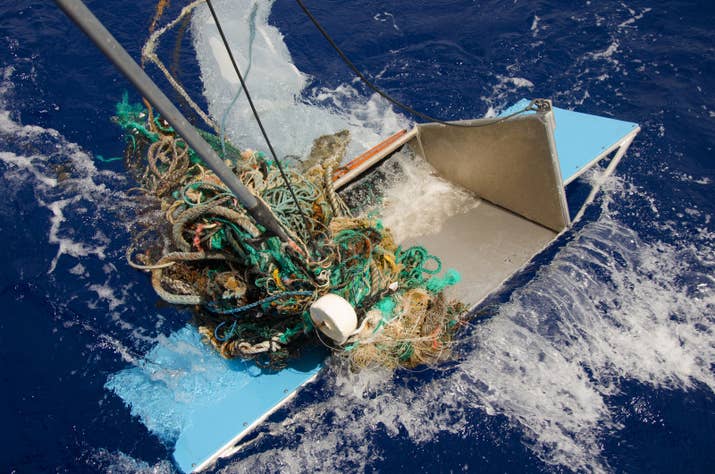 The Ocean Cleanup
The Ocean Cleanup Peter Dejong / AP
Peter Dejong / AP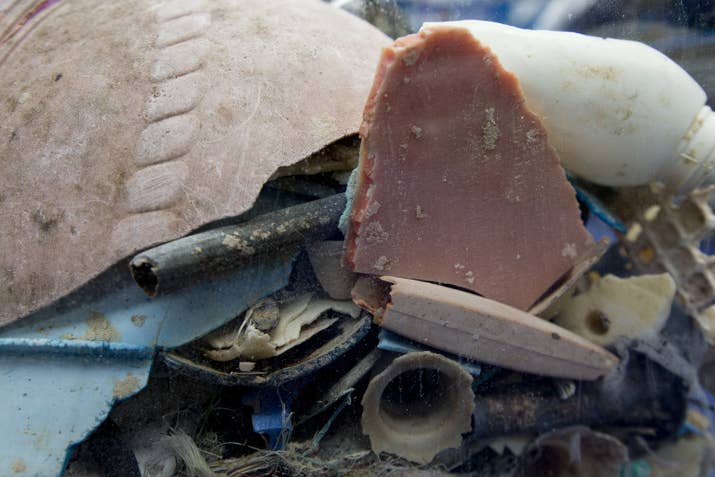 Peter Dejong / AP
Peter Dejong / AP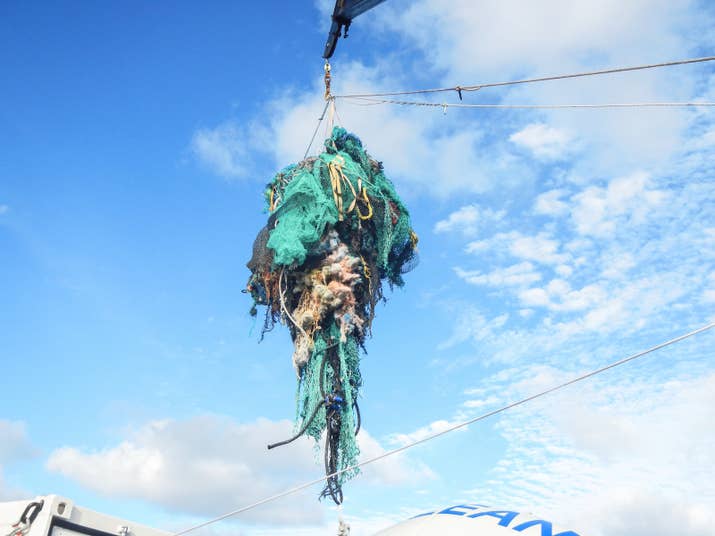 Ocean Cleanup is working on a system to remove the trash and fishing nets, which is set to launch this year.
Ocean Cleanup is working on a system to remove the trash and fishing nets, which is set to launch this year.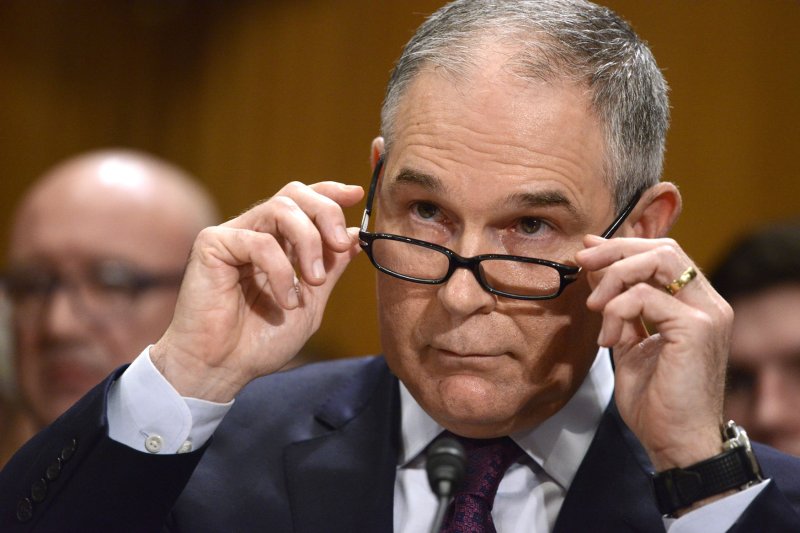 EPA Administrator Scott Pruitt is being scrutinized for the amount of money it took to send him to Italy last year. Documents show the costs amount to $120,000. File Photo by Mike Theiler/UPI
EPA Administrator Scott Pruitt is being scrutinized for the amount of money it took to send him to Italy last year. Documents show the costs amount to $120,000. File Photo by Mike Theiler/UPI Scott Pruitt.
Scott Pruitt.